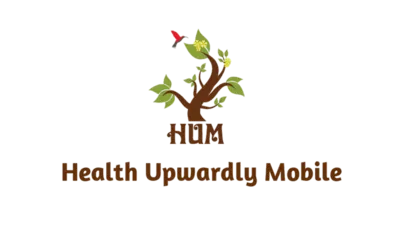Addiction involving Gambling
Addiction Involving Gambling
Gambling addiction, also known as Addiction involving gambling, is marked by a craving and impaired control in gambling. This addiction leads to physical, mental, relational, and financial distress. It may co-occur with substance use or sexual acting out. Seeking help for gambling addiction is crucial. Through gambling addiction counselling and proper gambling treatment, change and a high-quality life are achievable.
Symptoms of Addiction involving gambling can include an unmanageable relationship with:
- Internet gambling
- Casinos
- Unmanageability in life
- Slot machines
- Betting
- Lottery tickets
- Impulsive and/or compulsive decisions in investments
- In the past 12 months have you:
- Have you had an overpowering feeling to gamble?
- Gambled more often or for longer periods than intended?
- Felt annoyed by others criticizing your gambling?
- Felt guilty about your gambling?
- Hid or lied about how much you gamble?
- Been unsuccessful to consistently abstain from gambling despite wanting to?
If you answered ‘yes’ to one or more of these questions, it is likely that you are manifesting some symptoms of Addiction involving gambling and you may benefit from some professional support.
How we treat gambling addiction
At HUM, we offer specialized treatment for gambling addiction, ensuring comprehensive care that addresses your needs. Our approach to treating gambling addiction is grounded in the understanding that it is a primary, chronic brain disease requiring a holistic recovery approach. Our outpatient assessment and continuing care services are designed to cater to a more inclusive range of individuals dealing with addiction involving gambling.
Our commitment to your well-being knows no bounds. Once you become a patient at HUM, our services become an ongoing resource, available to you indefinitely based on your unique needs. Our continuing care and treatment options are designed to optimize your overall health and ensure a lasting recovery journey.
Following a thorough assessment, our treatment options are tailored to your specific situation. These options encompass a variety of approaches, including individual psychotherapy and group therapy, providing you with the necessary tools to overcome gambling addiction. Our intensive outpatient program offers a structured yet flexible approach, while medical detoxification and withdrawal management are available when needed. Medication management is also integrated as a potential component of your treatment plan.
Recognizing the significance of social and peer support, we encourage participation in 12-step groups like GA (Gamblers Anonymous). This support network plays a vital role in your recovery process. Moreover, we believe in a holistic approach to recovery, extending beyond traditional therapies. Practices such as meditation and journaling are recommended as part of a comprehensive bio-psycho-social-spiritual framework.
At HUM, we're here to provide gambling addiction treatment that goes beyond the surface, addressing the core aspects of your well-being. Reach out to us today and take the first step towards reclaiming a life free from the grasp of gambling addiction.
Available Services For Gambling Addiction
Comprehensive assessment
If you are concerned about your alcohol use, it is recommended to start with the comprehensive assessment. The assessment includes 3 appointments at our Calgary location and is designed to get to know you, determine the acuity of your issues and appropriate treatment recommendations that are individualized based on your needs. The 3 appointments include an initial nursing assessment, an assessment with a registered psychologist or social worker and thirdly with a medical doctor.
1 hour individual psychotherapy sessions
At HUM, we use a range of techniques based on experiential relationship building, dialogue, communication and behavior change that are designed to improve the mental health of an individual,and improve relationships with others (eg. family). Our goal is to provide an open, supportive, and confidential environment for you to address the issues that are concerning you. These principles can also be provided through couples/family sessions.
1 hour couples/family psychotherapy sessions
This provides the opportunity to clarify boundaries, identify what may be individual issues for people to work on, while addressing issues jointly without telling each other what to do.
2 hour weekly group psychotherapy with professional facilitators
The recovery support groups are process oriented therefore the structure of each group is fluid and reflective of the needs and current issues raised by group members. Group members have an opportunity to process their life issues and reflect on their recovery including successes and challenges they are facing. Group therapy allows individuals to discuss issues with the support of others in recovery, provide and offer feedback, build a recovery network and increase accountability.
An 18 day (144 hour) intensive outpatient program (IOP)
The IOP is spread out over 3 Phases and 3 months with a weekend family/friends program included. The IOP is designed for those wanting more intensive treatment.
What if you're facing legal charges?
For those who are facing legal charges for offences (e.g., DUI/impaired driving, drug charges, drug trafficking, assault, child custody etc.), it is important to have an assessment to determine if there are underlying Addiction or Mental Health issues that are affecting an individual’s behaviour. Behaviours that are explicable due to mental health problems (impairment in ability to make a choice) are dealt with differently in the justice system than behaviours that are considered wilful (bad choices).
How can we help with gambling charges?
This program is for anyone with past or current legal issues that would benefit from a comprehensive assessment and may need a medical legal report as part of their defense.
Request An Assessment

